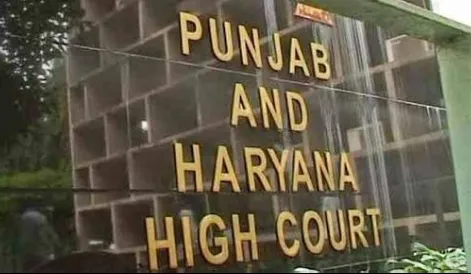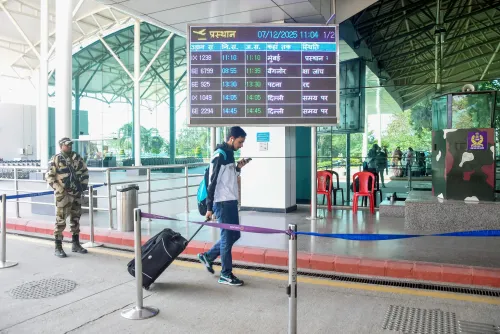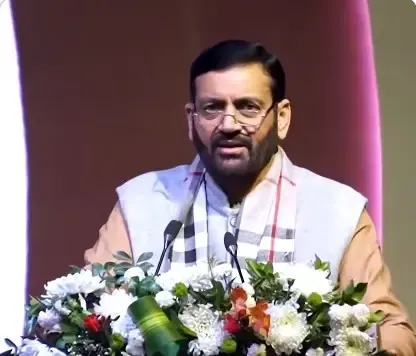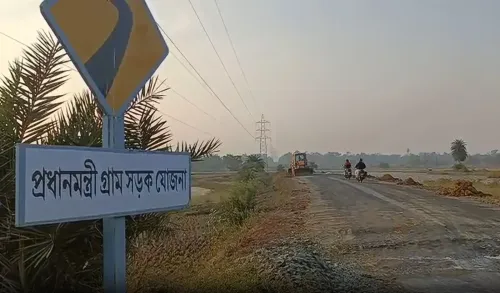Is the Punjab-Haryana Water Dispute Turning States Into Enemies?

Synopsis
Key Takeaways
- High Court stresses unity among states
- BBMB accuses Punjab of illegal actions
- Potential water shortages looming for downstream states
- Legal channels urged for dispute resolution
- Critical impact on agriculture and livelihoods
Chandigarh, May 6 (NationPress) On Tuesday, the Punjab and Haryana High Court expressed serious concerns regarding the ongoing water conflict between Punjab and Haryana, emphasizing that while India must address issues with Pakistan, states within the nation should not view each other as adversaries.
A Division Bench comprising Chief Justice Sheel Nagu and Justice Sumeet Goel was examining a petition filed by the Bhakra Beas Management Board (BBMB) that called for intervention against Punjab’s claimed takeover of the Nangal dam and its hindrance in water release to Haryana.
“We are engaging in actions typically reserved for our enemy nation. We should not adopt the same approach among our states,” remarked Chief Justice Nagu.
Senior Advocate Rajesh Garg, representing the BBMB, informed the Bench about the looming crisis, stating, “The downstream states will soon run dry,” while objecting to Punjab's police presence at the dam.
The government of Punjab countered by asserting that maintaining law and order is the state's responsibility.
“Law and order falls under the state's domain. The BBMB cannot dictate police actions or the deployment of forces. They are pushing for illegal resolutions. Given the current heightened border tensions, this needs careful consideration,” stated Punjab counsel Gurminder Singh.
In response, Garg warned that similar claims could arise from Himachal Pradesh concerning the Bhakra dam.
“Tomorrow, Himachal could assert similar demands regarding the Bhakra dam. This current issue pertains to the Nangal Dam, which is in Punjab,” he clarified.
The BBMB has filed a petition with the Punjab and Haryana High Court, accusing Punjab of unlawfully seizing control of the Nangal Dam and related water regulation offices, obstructing the constitutional flow of water to Haryana.
In its petition, the BBMB seeks urgent intervention and a directive for Punjab to withdraw its police presence, claiming it lacks legal grounds.
The BBMB noted a meeting on April 30, during which it decided to release 8,500 cusecs of water to Haryana, a move that Punjab contested.
“The actions taken by the Punjab government are entirely unconstitutional and illegal, interfering with the statutory duties of the board that holds national significance,” the BBMB’s petition states.
Additional Solicitor General Satya Pal Jain, representing the Central government, affirmed that the water flow by the BBMB benefits not only Haryana but also Rajasthan and Delhi.
“If any state has concerns regarding the BBMB's resolution to release water to Haryana, it should be addressed through the proper legal channels,” he stated.
He added that the water to be allocated is not part of Punjab’s share, urging the court to order the withdrawal of Punjab's police to enable BBMB to manage the water flow.
Advocate General for Haryana Parminder Singh asserted that Punjab is relentlessly resisting water distribution.
“What they are doing under the guise of dam protection is not their job. The demand for 8,500 cusecs is not solely for Haryana but also includes 1,049 cusecs for Delhi and 850 cusecs for Rajasthan,” he mentioned.
Singh concluded that any objections should be raised through appropriate channels before the Central government rather than through police deployment.










